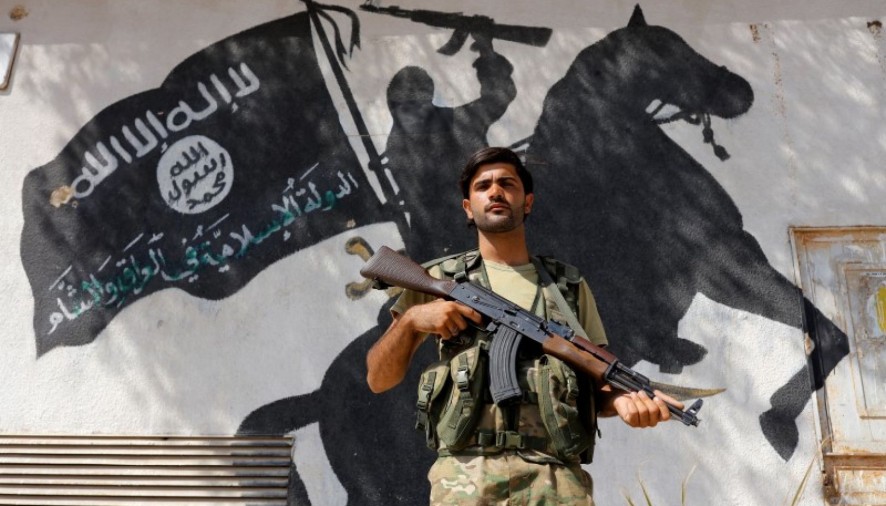The Syrian Civil War is currently approaching its sixth year.
Estimates of its casualty toll range between 200,00-400,000. What was
once one of the Middle East’s most heavily entrenched autocracies has
effectively imploded, an international refugee crisis has
precipitated, brutal sectarianism has been revived across the entire
central Middle East, and one of modern history’s most brutal and
dangerous terrorist groups (Islamic State) has revived itself out of
the ashes of the post-Saddam Iraqi Civil War. In part, this is due to
significant failings in Western foreign policy that developed as a
reaction to the outbreak of the Syrian Civil War.
When the Syrian Civil War broke out in early 2011, its beginnings were
far from how it developed. A group of teenagers were arrested and
tortured after graffitiing the rallying call of the Arab Spring in
their home town of Deraa: “the people want the fall of the regime”. In
response to this, protest rallies were organised across Syria, to
which the authorities responded by opening fire upon them. As time
progressed, the violence committed by the Assad regime escalated,
resulting in an increasing number of Sunni Arab defectors from his
armed forces and security services, who would go on to form the Free
Syrian Army (FSA). The FSA could have acted as a credible opposition
force had it received Western support along the same lines of Libya’s
anti-Gadaffi rebels, but none was forthcoming. This failure in policy
resulted in the FSA’s impotency, and failure to adequately protect
Syria’s civilians from the Assad regime’s war crimes.
However, the peak of this escalation is the Syrian regime’s repeated
use of chemical weaponry, especially in civilian population centres.
In August 2012, President Obama clearly stated that the regime’s use
of such weaponry would result in a “red line” being crossed, and
military action being taken against Assad. A year later, though, such
action was not forthcoming when chemical weaponry was again used
against civilians. This set a dangerous precedent which allowed the
Assad regime to commit war crimes with almost complete impunity, and
free of fear from Western military reprisals. As war crimes committed
by the Assad regime’s forces and allies against the people of Syria
have worsened, they have in turn bred extremism. Unsuccessful in their
efforts against Assad, the moderate rebels lost much of their support
which bled over to extremists such as Salafi-Jihadi groups: the IS,
Jabhat al-Nusra (now known as Jabhat Fatah al-Shaam after its split
from Al Qaeda) and Ahrar al-Shaam.
A failure to support appropriate elements of the Syrian opposition is
a common theme in the West’s involvement in this conflict. Due to
fears of arms and expertise falling into the hands of extremists, the
US was reluctant to offer meaningful support to rebel factions, i.e.
anti-aircraft missiles, severely limiting their operational capacity.
Although the Pentagon spent $500 million on training rebels to fight
both the Assad regime and IS, by September 2015 their manpower was a
dismal half dozen. It was only relatively late in the game that the US
and UK offered meaningful support in the forms of special forces
mentoring and aerial support to the war’s most successful rebel
faction: the Syrian Democratic Forces. A Kurdish led coalition of
ethnically diverse rebel factions, the SDF supports the establishment
of a secular federal state in Syria, where human and minority rights
are constitutionally guaranteed and protected. The SDF has also
proved effective against Islamic State, with its YPG faction
spearheading the campaign to uproot it from northern Syria.
However, towards the end of the summer, Turkey intervened in the
conflict decisively against the SDF. Turkey backs a number of
Salafi-Jihadi rebel groups, which with Turkish support, captured the
northern Syrian town of Jarabalus from IS. After this, though, the
Turkish-backed Salafi-Jihadi rebel factions turned against the YPG in
a bid to drive them out of their new area of operations. This occurred
with full Western acquiescence, which has in fact empowered the
Salafi-Jihadis while weakening a secular, pro-democracy faction. Given
that Syria’s anti-democratic Salafi-Jihadis rebels sit comfortably on
the same spectrum of brutality as the Islamic State, the West’s
enablement of them consolidating their position represents a
catastrophic failing in foreign policy.
So, while the West’s failings in Syria have been manifold, it is
possible to identify the three most significant, as has been outlined
above. Is it too late to save Syria from further horrors? Probably,
but a better response earlier would have mitigated much of today’s
dire situation.
Daniel Levy
Image: Reuters

